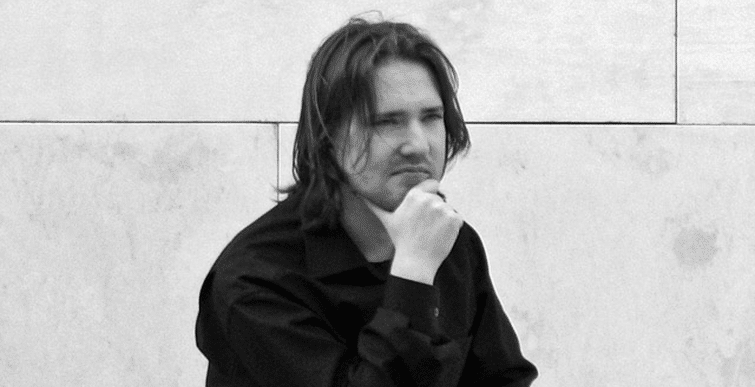
The sharp distinction between composers and performers culminated in classical-romantic aesthetics and even today the differentiation is quite obvious, although the lines are starting to blur. The cellist and composer Tomasz Skweres has been able keep the balance between his two professions in a most impressive manner. After the successful completion of his instrumental studies, the native of Warsaw started studying composition at the University of Music and Performing Arts in Vienna.
This year Tomasz Skweres was honored with a composition scholarship by the Austrian Federal Ministry for Education, Art and Culture and no longer only composes for his own instrument, but also for numerous chamber music ensembles and orchestras. At the same time he is also a member of renowned ensembles such as the Ensemble Platypus or the Ensemble reconsil and has been playing as a solo cellist for the Regensburg Philharmonic Orchestra since 2012. The four compositions in the music austria sheet music shop represent his compositional development from neo-classical beginnings through to postmodernism.
Influences: Bach, Reich, Slavic folk music
The first composition of Tomasz Skweres’ list of works is the “Suite for 2 cellos”, whereby the art form combined with the string instrument inevitably evokes the association with the master of cello suites – Johann Sebastian Bach. Skweres builds on the contrasting dance movements that were common in the Baroque and uses the counterpoint that was coronated by Bach. However, Skweres doesn’t stop here and explains in his preface some of the composition’s ingenuities that transfer the suite into contemporary music. As an example he names the bitonality in the minuet, whereby he not only refers to church modes, but also to the modes introduced by the composer Oliver Messiaen. In the first part of the scherzo he transfers the simultaneity of two phenomena to the rhythm with a resulting phase shift that is reminiscent of the minimalism’s founding father Steve Reich. The resort to his home country by the inclusion of Slavic folk music is evident in “Suite for 2 Cellos” and is the main influence. It therefore comes as no surprise that his chamber music at times reminds of Russian neoclassicism.
To emotionally touch the listener, Skweres at first relied in his compositions on the cello’s inherent “humanness” which he compared with the linearity of song. Three years later in “Helium”, the cellist experimented with various instrumentations and also found humanness in the unusual trio of alto flute, harpsichord and guitar. The famous Mickey Mouse voice after inhaling helium gas is created by the rapid vibration of vocal folds and gives the voice an additional timbre. With the trio the composer shows what would happen if instruments could inhale helium. The harpsichord with its inherent baroque tradition is tonally transferred into the 21st century and thereby gets a whole new meaning. The composer reduced the material to a minimum and achieves effects rather by trills, the rhythm and the specific interaction of instruments. A mysterious motif with the fifth and tritone intervals and additional clusters on the guitar and the harpsichord take the ease out of the high, helium-filled flute trills that float over the music like bird songs.
Challenging for performers
The two latest pieces in the sheet music shop, “Innere Gespräche” from 2007 and “Verse” from 2009 are indeed again written for the cello, but show Skweres’ new creative direction towards more experimental sounds and innovative playing techniques. “Innere Gespräche” takes the minimalist idea of ”Helium” and focuses on a different pitch in the various sections, which are draped with the help of noise-like sounds or rhythmic figures. Skweres describes the manipulation of time perception as a central objective of his work. In “Verse”, the rhythmic division into bar lines is largely abandoned in favor of the development of the sonic level. Many chords and glissandos make this piece very challenging for the performer. However, due to his multi-talents, the composer has the advantage of being able to perform the works on the cello himself. This is certainly just one of many good reasons why musicians should compose more often. We definitely do not want to do without the cellist or the composer Tomasz Skweres.
Text: Margarete Buch (translated from German)
Photo: © Dominant Media
Links
- Scores by Tomasz Skweres in shop.musicaustria.at
- Tomasz Skweres in the mica – music database
- Tomasz Skweres official website
DIG DEEPER INTO AUSTRIA’S MUSIC

Link: https://shop.musicaustria.at/
